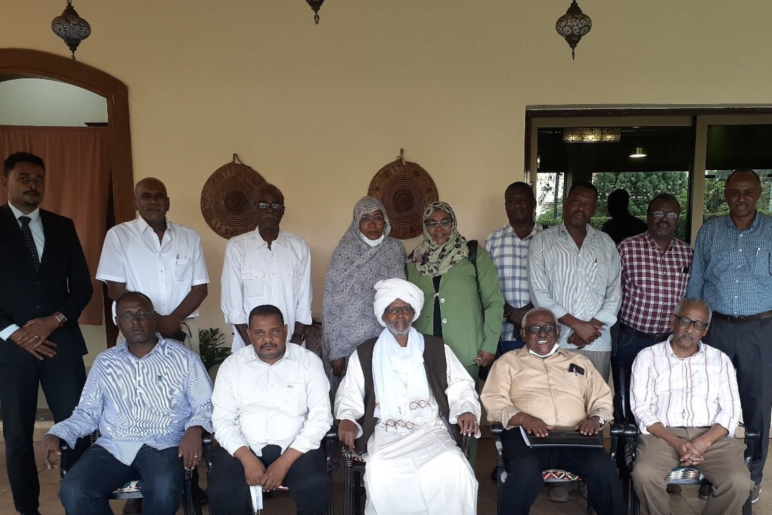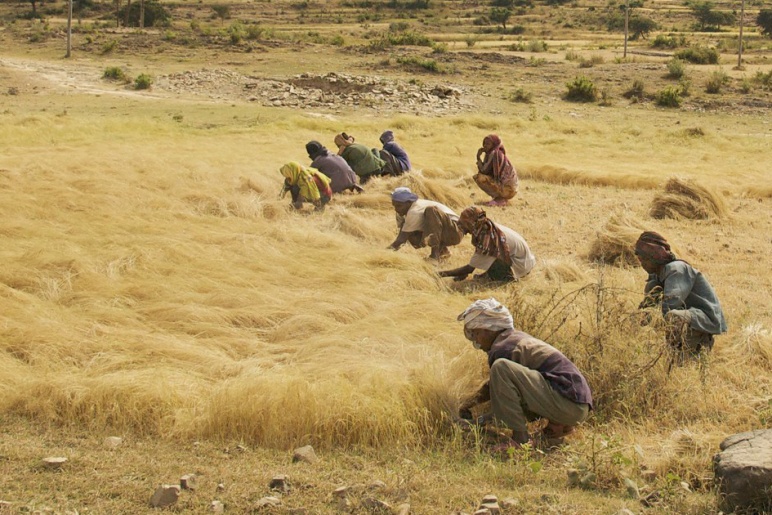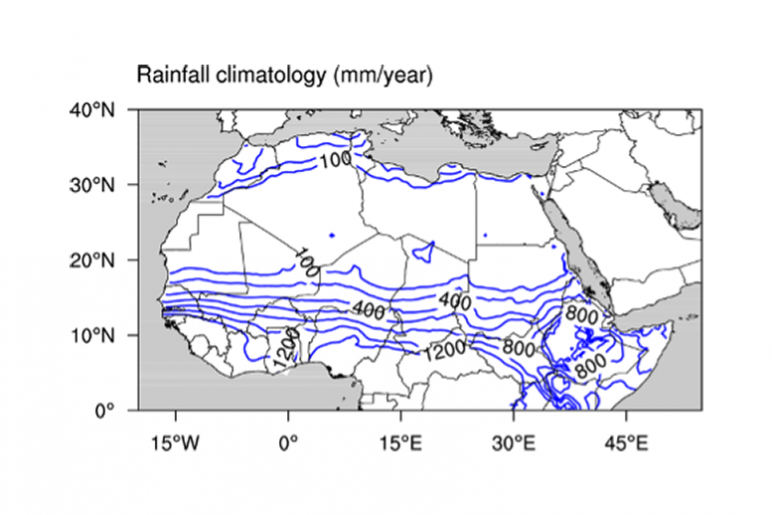Our Research Impact of near-term climate change on water availability and food productivity in Africa

Participants of a workshop run by the research team in Khartoum on July 30, 2022

Changes in rainfall are likely to impact key crops in Sub-Saharan Africa. Image Credit: The Teff Harvest, Northern Ethiopia by A.Davey, CC BY

Spatial distribution of climatological annual total rainfall (unit: mm/year) for period 1990-2019 derived from Climatic Research Unit (CRU) dataset. Image Credit: Eltahir group
Principal Investigator
Elfatih Eltahir
- H.M. King Bhumibol Professor
- Professor of Civil and Environmental Engineering
- Department of Civil and Environmental Engineering
Elfatih Eltahir is the Breen M. Kerr Professor of Hydrology and Climate and Professor in the Department of Civil and Environmental Engineering. He is a recipient of Kuwait Prize in Applied Science in 2000, elected Fellow of the American Geophysical Union (AGU) in 2008, and recipient of Hydrologic Sciences Award of the American Geophysical Union in 2017. His work focuses on how shifts in land cover, land use, and climate impacts society through changes in the patterns of water availability, extreme weather, and spread of vector-borne diseases. His work utilizes numerical models to predict such impacts at regional scales.
Challenge:
How will near-term climate change impact water availability and rain-fed agriculture in the southern fringes of the Sahara Desert? How can stakeholders properly plan and adapt to these changes?
Research Strategy
- Use regional and global climate models to determine future climate scenarios in order to evaluate climate mitigation and adaptation strategies for agricultural planning
- Evaluate the effect of rainfall and surface temperature on key food crops (sorghum, millet, sesame, and teff) using meteorological and agricultural data from Africa
Project description
The risk to any society from climate change impacts stems not only from the vulnerability of the local community, but also from the nature and intensity of projected climate change impacts, which vary among different countries and regions. This project addresses the variability of climate change impacts in the context of Africa. The research team will investigate the risk to water availability and rain-fed agriculture in the southern fringes of the Sahara Desert from projected climate change in the near-term (2021-2050). The aim is to develop a better understanding of the pattern and intensity of changes in rainfall distribution, surface temperature, and the associated changes in food crops yield. The goal is to inform sound climate change adaptation strategies in Africa and help prioritize sub-regions and economic sectors for policy intervention. This project's approach draws on regional climate modeling using the MIT Regional Climate Model (MRCM), and combines it with an analysis of archived observations on climate variables such as rainfall and temperature and concurrent agricultural observations on yield of key food crops grown in Africa. The ultimate goal is to enable sound planning of climate change adaptation with regard to water availability and food production in this region of Africa.
Outcomes
- Harnessed the power of the MIT Regional Climate Model (MRCM), an advanced climate model developed by Eltahir’s research group, and validated its performance
- Generated bias-corrected MRCM simulations, which exhibited impressive fidelity in reproducing region-specific climate attributes, including climatology and observed trends in climate variables like temperature and precipitation
- Identified the potential impacts of climate change on the main food crops in Sudan and Ethiopia, and learned that the forecasted increase in temperature is likely to negatively impact the yield of major crops in Sudan, while crop yield in Ethiopia might benefit from the increase in temperature, which is currently lower than the optimal temperature of many crops, including sorghum
- Led two workshops that fostered connections, research collaboration, and the seamless exchange of knowledge among pertinent stakeholders
Publications
Near-term regional climate change in East Africa
Yeon-Woo Choi, Deborah J. Campbell, and Elfaith A.B Eitahir, Climate Dynamics, 2022
Additional Details
Impact Areas
- Water
- Food
- Climate & Sustainability
Research Themes
- Sustainability & Adaptation
- Soil Fertility & Crop Productivity
- Modeling & Data Analytics
- Equity & Access
Year Funded
- 2021
Grant Type
- Seed Grant
Status
- Completed
